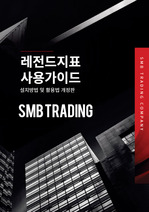경영전략과 전략적 관리회계 시스템이 경영성과에 미치는 영향
*수*
다운로드
장바구니
소개글
"경영전략과 전략적 관리회계 시스템이 경영성과에 미치는 영향"에 대한 내용입니다.목차
제 1 장 서 론제 1 절 연구의 배경, 목적 및 차별성
제 2 절 연구의 대상과 방법
제 2 장 이론적 배경 및 선행 연구
제 1 절 경쟁전략
1. 전략의 정의
2. 전략의 유형
3. 경쟁전략과 관리회계시스템
제 2 절 전략적 관리회계
1. 전략적 관리회계의 정의
2. 전략적 관리회계의 필요성
3. 전략적 관리회계의 기법
제 3 절 정보교류체계
1. 정보교류체계의 정의
2. 관리회계시스템과 정보교류체계의 관계
제 4 절 경영성과
1. 경영성과의 개념
2. 경영성과의 측정
제5절 선행연구와 본 연구의 차이점
제 3 장 연구설계
제 1 절 연구모형의 설계
제 2 절 연구가설의 설정
1. 경쟁전략과 경영성과 간의 관계
2. 경쟁전략과 전략적 관리회계시스템 이용 간의 관계
3. 전략적 관리회계시스템 이용과 경영성과 간의 관계
4. 전략적 관리회계시스템 이용의 매개효과
5. 정보교류체계의 조절효과
제 3 절 변수의 조작적 정의 및 측정
1. 경쟁전략
2. 전략적 관리회계시스템의 이용
3. 정보교류체계
4. 경영성과
제 4 절 자료의 수집과 분석방법
제 4 장 실증 분석 결과
제 1 절 표본의 특성 및 기술통계량
1. 표본의 특성
2. 표본의 기술통계량
제 2 절 연구변수의 신뢰성 및 타당성 검증
1. 구형성, Bartlett 검정
2. 탐색적 요인분석
3. 확인적 요인분석
4. 구성개념 간 상관관계 분석
제 3 절 가설 검증
1. 경쟁전략, SMA시스템의 이용, 경영성과 간 경로분석
2. SMA시스템 이용의 매개효과
3. 정보교류체계의 조절효과
4. 가설검증 결과의 요약
제 5 장 결 론
제 1 절 연구결과 요약 및 시사점
제 2 절 연구의 한계점 및 향후 연구과제
참 고 문 헌
설 문 지
본문내용
전통적관리회계시스템은제조과정을다루는과다한가정에의존해왔고, 변 화하는경쟁및제조환경에반응하지못한다.이것은결과적으로관리회계가더 이상 변화하는 환경에 적합하지 않고 훌륭한 경영의사결정에 비생산적이라는 상황을낳았다(Bromwich & Bhimani, 1989; Otley, 2001; Drury, 2004). 새로운 관리회계기법의 사용을 요청함에 있어서 Simmonds(1981)는 “전략적 관리회 계”(Strategic Management Accounting, 이하 SMA라 함)라는 용어를 처음 주 장하였다. 그러나 전략적 관리회계는 1980년대 후반까지는 중요하게 취급되지 않았다. 거의같은시기미국에서Kaplan, Cooper, 그리고Shank 등과같은영 향력있는 학자들은 관리회계의 적합성(relevance)을 개선할 것을 촉구하였다 (Langfield-Smith,2008).SMA는장기적,미래지향적,그리고외부에초점을둔 여러 가지 기법을 포함한다(Bromwich & Bhimani, 1989; 1994; Wilson, 1995; Roslender & Hart, 2003). Simmonds(1981), Shank(1989), Bromwich(1996), Roslender(1995),그리고Kaplan & Norton(1992)등이SMA를열렬히지지하는 학자들이다.이들의대부분논문은지속할수있는경쟁우위에의해장기적으로 평균 이상의수익을달성하기위한전략의수립, 실행에대한가치사슬 분석과 다섯 가지 경쟁원천을 소개한 Porter(1980, 1985)의 영향을 받았다. 그 이후 SMA의활용에대해많은관심이있었지만, 이들기법을활용하는데 따른 유 효성에대한실증적연구는부족하였다. Langfield-Smith(2008)는SMA의폭넓은 채택에 대한 주목할 만한 증거를 찾지 못하였다. 또한, Roslender & Hart(2010)는SMA라는용어가Simmonds(1981)에의해주장된지30년이지났 음에도 불구하고 SMA의 의미에 대한 일치된 견해가 없다는 점을 안타까워했 다.참고 자료
공석진, “경영전략이 경영성과에 미치는 영향-정보기술 활용도를 매개와 조 절효과 중심으로-,” 호서대학교 박사학위논문, 2013.김달곤, “경영전략과 성과평가시스템 이용간의 관계가 경영성과에 미치는 영향”, 국제회계연구, 27, pp.121-140, 2009
김동희․강성배․문태수, “교류기억체계와 전문지식 통합이 프로젝트팀 성 과에 미치는 영향: 정보시스템 개발 환경을 중심으로”, 한국경영학회, 통합학술발표논문집, pp.1391-1409, 2015.
김범종, “동태적 시장변화에 대한 전략적 대응이 성과에 미치는 영향에 관 한 연구”, 고려대학교 박사학위논문, 1990.
김효중·최계봉·최용길, “중소·벤처기업의 경영성과 영향요인에 관한 실증연 구”, 한국상업교육연구, 17, pp.285-322, 2007.
권순석, “기업특성과 전략적 원가관리기법이 경영성과에 미치는 영향”, 동아 대학교 박사학위논문, 2010.
권순석·이충섭, “기업특성과 전략적 원가관리기법이 중소기업의 경영성과에 미치는 영향”, 회계정보연구, 28(4), pp.25-41, 2010.
리펑페이·박경원·이성균, “성장전략, 성과측정시스템 및 조직성과간의 관계”, 국제회계연구, 66, pp.21-44, 2016.
박경원, “경영전략, 성과측정시스템의 이용, 측정치의 다양성, 그리고 경영성 과 간의 관계”, 서강대학교 박사학위논문, 2006.
반태현․송신근, “경영전략, 경영혁신, 전략적 관리회계시스템과 경영성과 간의 관계”. 회계저널, 21(1), pp.203-236, 2012.
송재준, “팀 협업과 정보교류체계가 성과에 미치는 영향-성숙도의 조절 효 과를 중심으로”, 가천대학교 박사학위논문, 2013.
손우진, “전략, 경영통제시스템, 기업성과와 관리회계담당자 역할의 관계에 대한 연구-중·소 섬유제조기업을 중심으로-”, 가천대학교 박사학위논 문, 2015.
심계원, “경영전략이 경영통제시스템을 통하여 경영성과에 미치는 영향에 관한 연구”, 경원대학교 박사학위논문, 2011.
오현종, “전략적 불확실성과 관리회계시스템의 적합이 성과에 미치는 영향 에 관한 연구”, 인천대학교 박사학위논문, 2002.
유세준․최근영, “경영전략과 아웃소싱의 적합관계에 관한 연구”, 중소기업 연구, 24(4), pp.291-309, 2001.
이관숙, “자동차산업의 전략적 원가기획시스템이 기업의 경영성과에 미치는 영향에 관한 연구”, 중앙대학교 박사학위논문, 2003.
이규홍, “경영환경, 조직문화 및 경영전략이 관리통제시스템과 경영성과에 미치는 영향”, 한국교통대학교 박사학위논문, 2017.
이상규, “호텔의 경영 전략 유형에 따른 경쟁력 강화 방안이 경영성과에 미 치는 영향”, 호텔관광연구, 11(3), pp.99-121, 2009.
이상식․김복구, “경쟁전략 및 경영혁신과 경영성과와의 관련성에 관한 연 구”, 대한경영학회지, 16(2), pp.321-343, 2003.
이진석, “산업경쟁요인에 따른 경쟁전략의 적합성이 기업성과에 미치는 영 향”, 부산대학교 박사학위논문, 2011.
이현병․김원배, “ERP시스템 도입 후 변화관리와 성과측정시스템이 기업 성과에 미치는 영향-정보역량을 조절효과로 하여”, 글로벌경영학회 지, 14(4), pp.233-256, 2017.
임태종·이상완, “환경불확실성과 관리통제시스템이 전략변화에 미치는 영 향”, 국제회계연구, 60, pp.207-230, 2015.
임희정, “지식근로자 팀 효과성의 통합모델: 공유인지의 역할을 중심으로”, 이화여자대학교 박사학위논문, 2005.
장세진, 글로벌경쟁시대의 경영전략(제5판), 박영사: 서울, 2007. 장행수, “디자인 핵심역량과 기업성과의 상관성에 관한 연구”, 중앙대학교 박사학위논문, 2008.
정명환, “전략적 관리회계의 생성 배경과 접근방법”, 산업혁신연구, 2, pp.67-89, 2003.
장정희, “AMT도입에 따른 관리회계정보시스템의 전략적 활용이 생산성과 에 미치는 영향”, 경북대학교 박사학위논문, 2004.
전중욱, “전략과 관리회계시스템 및 정보기술이 경영성과에 미치는 영향에 관한 연구”, 상지대학교 박사학위논문, 2010.
정재진․권순철, “전략유형, FMS수준, 관리회계정보 특성의 적합성이 생산 성에 미치는 영향”, 회계학연구, 27(1), pp.1-26, 2002.
조상구, “경영혁신기법과 성과관리시스템의 속성이 중소기업 성과에 미치는 영향”, 동아대학교 박사학위논문, 2009.
최현정, “환경불확실성 속에서 전략적 관리회계가 전략형성과 경영성과에 미치는 영향”, 서강대학교 박사학위논문, 2014. ·
이상완·김순기, “환경불확실성에 따른 예산시스템 이용방식이 경영성과에 미치는 영향”, 회계저널, 23(6), pp.457-486, 2014.
최덕규․노원섭, “공장자동화 수준과 원가구조 및 경영성과: 부산․울산․경 남지역의 중소기업을 중심으로”, 경영교육논총, 41, pp.127-148, 2006.
최종민, “성과증진을 위한 관리회계정보시스템 전략적 연계모형”, 한국산업 경영학회 경영연구, 18(4), pp.57-84, 2003.
최종민, “전략적 성과평가시스템을 통한 지식경영 전략적 연계와 지식자원 의 경쟁적 활용”, 회계저널, 21(5), pp.1-29, 2012.
최종민, “생산기술 첨단화에 따른 관리회계정보시스템 전략적 연계가 생산 성과에 미치는 영향”, 정보시스템연구, 26(2), pp.25-42, 2017
최재훈․김문중, “팀 학습행동과 정보교류체계가 팀 성과에 미치는 영향: 팀 응집력의 조절효과를 중심으로”, 글로벌경영학회지, pp.121-144, 2015.
황지현, “호텔기업의 내부역량이 경쟁전략 유형 및 상대적 성과우위에 미치 는 영향”, 세종대학교 박사학위논문, 2011.
Abraham, S. C., Strategic Planning, A Practical Guide for Competitive Success, Thomson South-Western, 2006.
Abernethy, M. A., & A. Lilles, “The Impact of Manufacturing Flexibility on Management Control System Design”, Accounting, Organizations and Society, 20(4), pp.241-258, 1995. , &
C. H. Guthrie, “An Empirical Assessment of the Fitbetween Strategy and Management Information System Design”, Accounting and Finance, 4(2), pp.49-65, 1994.
Allen, R. S., & M. M. Helms, “Linking Strategic Practices and Organizational Performance to Porter's Generic Strategies”, Business Process M anagement J ournal, 12(4), pp.433-454, 2006..
Andrews, K. R., The Concepts of Corporate Strategy, Dow Jones-Irwin, 1971.
Andrews, K. R., The Concepts of Corporate Strategy (Revised Edition), R. D. Irwin, 1980.
Ansoff, H. I., Strategic D ecisions, Wiley Encyclopedia of Management, 1965.
Anthony, R. N., Planning and Control Systems: A F ramework for Analysis. Boston, MA: Harvard Business School Press. 1995.
Argote, L., Organizational Learning: Creating, Retaining, and Transferring Knowledge. Kluwer. Academic Publishers, Boston, MA, 1999.
Austin, J., "Transactive Memory in Organizational Groups: The Effects of Content, Consensus, Specialization, and Accuracy on Group Performance", J ournal of Applied Psychology, 88, pp.866-878, 2003.
Bai, G., & R. Krishnan, “Role of Management Accounting Systems in the Development and Efficacy of Transactive Memory Systems”, J ournal of M anagement Accounting Research, 24, pp.201-220, 2012.
Baines, A., & K. Langfield-Smith, “Antecedents to Management Accounting Change: A Structural Equation Approach”, Accounting, Organizations and Society, 28, pp.675-698, 2003.
Banker, R. D., S. Datar, S. Kekre & T. Mukhopadhyay, Costs of Product and Process Complexity. In; R. S. Kaplan (ED.). Measures for Manufacturing Excellence (Chapter 9). Boston, MA: Harvard Business School Press, 1990.
Banker, R. D., & H. H. Johnston, "Cost and Profit Driver Research", Handbook of M anagement Accounting Research, 2, pp.531-556, 2007.
Baron, R. M., & D. A. Kenny, “The Moderator-Mediator Variable Distinction in Social Psychological Research: Conceptual, Strategic and Statistical Considerations”, J ournal of Personality and Social Psychology, 51(6), pp.1173-1182, 1986.
Bisbe, J., & R. Malagueňo, “Using Strategic Performance Measurement Systems for Strategy Formulation: Does it Work in Dynamic Environments?”, M anagement Accounting Research, 23(4), pp.296-311, 2012.
Bromwich, M., “The Case for Strategic Management Accounting: The Role of Accounting Information for Strategy in Competitive Markets”, Accounting, Organizations and Society, 15(1-2), pp.27-46, 1990. ,
Strategic M anagement Accounting in M anagement Management Accountant, pp.203-227, 1996. , &
A. Bhimani, M anagement Accounting: Evolution not Revolution, The Chartered Institute of Management Accountants, 1989. ,& ,
M anagement Accounting: P athways to Progress, The Chartered Institute of Management Accountants, 1994.
Burns, J., & R. W. Scapens, “Conceptualizing Management Accounting Change: An Institutional Framework”, M anagement Accounting Research, 11(1), pp.3-25, 2000.
Cadez, S., & C. Guilding, “An Exploratory Investigation of an Integrated Contingency Model of Strategic Management Accounting”, Accounting, Organizations and Society, 33, pp.836-863, 2008.
Champbell-Hunt, C., “What Have We Learned About Generic Competitive Strategy? A Meta-Analysis”, Strategic M anagement J ournal, 21(2), pp.127-154, 2000.
Chandler, A. D., Strategy and Structure, Cambridge, MA: MIT Press, 1962. Chapman, C. S., “Reflection on a Contingent View of Accounting”, Accounting, Organizations and Society, 23(8), pp.737-766, 1997.
Chenhall, R. H., “Management Control Systems Design Within its Organizational Context: Findings From Contingency-Based Research ccounting Handbook, Dury, C., (Ed) The Chartered Institute of and Directions for the Future”, Accounting, Organizations and Society, 28(2-3), pp.127-168, 2003. ,
“Integrative Strategic Performance Measurement Systems, Strategic Alignment of Manufacturing Learning and Strategic Outcomes: An Exploratory Study”, Accounting, Organizations and Society, 30, pp.395-422, 2005. , &
K. Langfield-Smith, “The Relationship between Strategic Priorities, Management Techniques and Management Accounting; An Empirical Investigation Using A Systems Approach. Accounting”, Accounting, Organization and Society, 23(3), pp.243-264, 1998. , &
D. Morris, “The Impact of Structure, Environment and Interdependence on the Perceived Usefulness of Management Accounting Systems", The Accounting Review, 61, pp.16-35, 1986. , & ,
“Organic Decision and Communication Processes and Management Accounting Systems in Entrepreneurial and Conservative Business Organizations", Omega, International J ournal of M anagement Science, 23(5), pp.485-497, 1995.
Choi, S. Y., H. Lee., & Y. Yoo, “The Impact of Information Technology and Transactive Memory Systems on Knowledge Sharing, Application, and team Performance: A Field Study", M I S Quarterly, 34(4), pp.855-870,
2010. Chong, V. K., & K. M. Chong, “Strategic Cchoices, Environmental Uncertainty and SBU Performance: A Note on the Intervening Role of Management Accounting Systems”, Accounting and Business Research, 27(4), pp.268-276, 1997.
Cinquini, L., & A. Tenucci, "Strategic Management Accounting and Business Strategy: A Loose Coupling?”, J ournal of Accounting & Organizational Change, 6(2), pp.228-259, 2010.
Cokins, G., Performance M anagement. New York, NY: Wiley. 2004.
Cooper, R., & R. S. Kaplan, H ow Cost Accounting Systematically Distorts Product Costs. In; W. Bruns & R. S. Kaplan (Eds), Accounting and Management; Field Study Perspectives(Chapter 8). Boston, MA: Harvard Business School Press, 1987. ,& , “Measure Costs Right: make the Right Decisions”, Harvard Business Review 88(5), pp.96-103, 1988. , &
R. Slagmulder, “Develop Profitable New Products with Target Costing”, Sloan M anagement Review, 40(4), pp.23-33, 1999.
Cravens, K. S., & C. Guilding, “An Empirical Study of the Application of Strategic Management Accounting Techniques”, Advances in M anagement Accounting, 10, pp.95-124, 2001.
Cruz, N. M., V. M. Perez, & Y. F. Ramos, “Transactive Memory Processes that Lead to better Team Results”, Team Performance M anagement, 13(7/8), pp.192-205, 2007.
Datar. S. M., S. Kekre, T. Mukhopadhyay, & K. Srinivasan, “Simultaneous Estimation of Cost Drivers”, The Accounting Das, S. R., S. A. Zahra, & M. E. Warkentin, “Integrating the Content and Process of Strategic MIS Planning with Competitive Strategic”, D ecision Sciences, 22(3), pp.953-984, 1991.
Dent, J. F., “Strategy, Organization and Control: Some Possibility and for Accounting Research”, Accounting, Organizations and Society, 15, pp.3-25, 1990.
Dermer, J., “The Strategic Agenda: Accounting for Issues and Support”, Accounting, Organizations and Society, 15(1-2), pp.67-76, 1990. Dess, G. G., & P. S. Davis, “Porter's(1980).
Generic Strategies as Determinants of Strategic Group Membership and Organizational Performance”, The Academy of M anagement J ournal, 27(3), pp.467-488, 1984.
Dess, G. G., G. T. Lumpkin, & L. T. Marilyn., Strategic M anagement, Second Edition, New York: McGraw-Hill Irwin, 2005.
Drury, C., M anagement and Cost Accounting, 6th Edition, Thomson Learning, 2004.
Fisher, I., "Use of Non-Financial Performance Measures," J ournal of Cost M anagement, Spring, pp.31-38, 1992.
Gerdin, J., & J. Greve, “Forms of Contingency Fit in Management Accounting Research: A Critical Review”, Accounting, Organizations and Society, 29, pp.303-326, 2004.
Ghemawat, P.. "Sustainable Advantage." Harvard Business Review, Review, 68(4), pp.602-614, 1993.
September-October, pp.53-58, 1986
Goold, M., & J. J. Quinn, Strategic Control: M ilestones for Long-term Performance. London: Pitman Publishing, 1993.
Govindarajan, V., “A Contingency Approach to Strategy Implementation at the Business-Unit Level: Integrating Administrative Mechanisms with Strategy”, Academy of M anagement J ournal, 31(4), pp.828-853, 1988. , &
J. Fisher, “Stategy Control System and Resource Sharing ; Effect on Business-unit Performance”, Academy of M anagement J ournal, 33(2), pp.259-285, 1990.
Guilding, C., “Competitor-focused Accounting; An Exploratory Note”, Accounting, Organizations and Society, 24(7), pp.583-595, 1999. ,
K. S. Cravens, & M. Tayles, “An International Comparison of Strategic Management Accounting Practices”, M anagement Accounting Research, 11, pp.113-135, 2000.
Gupta, A. K., “SBU Strategic, Corporate-SBU Relations and SBU Effectiveness in Strategy Implementation”, Academy of M anagement J ournal, 30(3), pp.477-500, 1987. , &
V. Govindarajan, “Business Unit Strategy, Managerial Characteristics, and Business Unit Effectiveness At Strategy Implementation”, Academy of M anagement J ournal, 27(1), pp.25-41, 1984.
Hambrick, D. C., “Some Tests of the Effectiveness and Functional Attributes of Miles and Snow's Strategy Types”, Academy of M anagement J ournal, 26(1), pp.5-26, 1983.
Hammedi, W., A.C.R. van Riel, & Z. Sasovova, “Improving Screening Decision Making through Transactive Memory Systems: A Field Study”, J ournal of Product Innovation M anagement, 30(2), pp.316-330, 2013.
Hatten, K. J., & M. L. Hatten, Effective Strategic M anagement, Englewood Cliffs, NJ: Prentice-Hall, 1988.
Heagy, C. D., “Determining Optimal Quality Costs by Considering Cost of Lost Sales”, J ournal of Cost M anagement, 5(3), pp.64-72, 1991.
Hill, C. W. L., “Differentiation Versus Low Cost or Differentiation and Low Cost: A Contingency Framework”, The Academy of M anagement Review, 13(3), pp.401-412, 1988.
Hoffecker, I. & C. Goldenberg, "Using the Balanced Scorecard to Develope Company wide Performance Measure”, J ournal of Cost M anagement, Fall, pp.5-17, 1994.
Hollingshead, A. B., “Cognitive Interdependence and Convergent Expectations in Transactive Memory”, J ournal of Personality and Social Psychology, 81(6), pp.1080-1089, 2001.
Hoque, Z., “A Contingency model of the Association between Strategy, Environmental Uncertainty and Performance Measurement: Impact on Organizational Performance”, International Business Review, 13, pp.485-502, 2004.
Homburg, C. & C. Pflesser, “A Multi-layer Model of Market-oriented Organizational Culture : Measurement Issues and Performance Outcomes”, J ournal of M arketing Research, 37, pp.449-462, 2000.
Ittner, C. D., & D. F. Larcker, “Quality Strategy, Strategic Control Systems, and Organizational Performance”, Accounting, Organizations and Society, 22(3), pp.293–314, 1997. ,& ,
“Innovations in Performance Measurement: Trends and Research Implications”, J ournal of M anagement Accounting Research, 10, pp.205-238, 1998. ,& ,
“Assessing Empirical Research in Managerial Accounting: A Value-based Management Perspective”, J ournal of Accounting and Economics, 32(1), pp.349-410, 2001. , , &
T. Randall, “Performance Implications of Strategic Performance Measures in Financial Services Firms”, Accounting, Organizations and Society, 28(8), pp.715-741, 2003.
Jermias, J., & L. Gani, “Integrating Business Strategy, Organizational Configurations And Management Accounting Systems with Business Unit Effectiveness: A Fitness Landscape Approach”, M anagement Accounting Research, 15, pp.179-200, 2004.
Jones, L., “Competitor Cost Analysis at Caterpillar”, M anagement Accounting, 70(4), pp.32-38, 1988.
Johnson, G., Strategic Changes and the M anagement Process, Blackwood, Oxford(1987): G. Johnson, Managing Strategic Change-strategy, Culture and Action, Long Range Planning 25(1), pp.28-36, 1992.
Johnson, T., & R. S. Kaplan, Relvance Lost: The Rise and Fail of M anagement Accounting. Boston, MA: Harvard Business School Press, 1987.
Jusoh, R., & J. A. Parnell, “Competitive Strategy and Performance Measurement in the Malaysian Context: An Exploratory Study”, M anagement D ecision, 46(1), pp.5-31, 2008.
Kanawattanachai, P., & Y. Yoo, “The Impact of Knowledge Coordination on Virtual Team Performance over Time”, M I S Quaterly, 31(4), pp.783-808, 2007.
Kaplan, R. S., & R. Cooper, Cost and Effect. Boston, MA: Harvard Business School Press, 1998. , &
D. P. Norton, “The Balanced Scorecard Measures That Drive Performance”, Harvard Business Review, January-February, pp.123-145, 1992. ,& ,
The Balanced Scorecard: Translating Strategy into Action. Boston, MA; Harvard Business School Press, 1996.
King, W. R., & R. Sabherwal, “The Factors Affecting Strategic Information Systems Application: An Empirical Assessment”, Information and M anagement, 23(4), pp.217-235, 1992.
Koltler, P., & K. L. Levy, M arketing M anagement (12th ed.). Upper Saddle River, NJ: Pearson Prentice Hall, 2005.
Kumar, K., & R. Subramanian, “Porter's Strategic Types: Differences in Internal Processes and their Impact on Performance”, J ournal of Applied Business Research, 14(1), pp.107-123, 1997.
Langfield-Smith, K., “Management Control Systems And Strategy: A Critical Review”, Accounting, Organizations and Society, 22(2), pp.207-232, 1997. ,
“Strategic Management Accounting; How Far have We Come in 25 Years?”, Accounting, Auditing and Accountability J ournal, 21(2), pp.204-228, 2008.
Lewis, K., “Measuring Transactive Memory Systems in the Field: Scale Development and Validation”, J ournal of Applied Psychology, 88(4), pp.587-604, 2003. , &
B. Herndon, “Transactive Memory Systems: Current Issues and Future Research Directions”, Organization Science, 22(5), pp.1254-1265, 2011.
Lord, B., “Strategic Management Accounting: The Emperor's New Clothes”, M anagement Accounting Research, 7(3), pp.347-366, 1996
Maher, M. W., Activity-based Costing and Management, Handbook of Cost M anagement, pp.217-241, 2005.
Miles, R. W., & C. C. Snow, Organizational Strategy, Structure and Process, McGraw-Hill, 1978.
Miller, A., & G. G. Dess, “Assessing Porter's(1980) Model in Terms of its Generalizability, Accuracy And Simplicity”, J ournal of M anagement Studies, 30(4), pp.553-585, 1993.
Miller, D., “Relating Porter's Business Strategies to Environment and Structure: Analysis and Performance Implications”, Academy of M anagement J ournal, 31(2), pp.280-294, 1988. , &
P. H. Friesen, ”Innovation in Conservative and Entrepreneurial Firms; Two Models of Strategic Momentum”, Strategic M anagement J ournal, 3(1), pp.1-25, 1982.
Miller, J. A., Implementing Activity-based M anagement in Daily Operations. New York, NY: Wiley, 1996.
Miller, J. G., & T. E. Vollmann, “The Hidden Factory”, Harvard Business Review, 63, pp.142-150, 1985.
Miller, P., & T. O'Leary, “Accounting Expertise and the Politics of the Product: Economic Citizenship and Modes of Corporate Governance”, Accounting, Organizations and Society, 18(2), pp.187-206, 1993.
Mintzberg, H., “Patterns in Strategy Formation”, M anagement Science, 24(9), May, pp.934-948, 1978. , “The Strategy Concept I: Five Ps for Strategy”, California M anagement Review, Fall, pp.11-24, 1987. , &
J. Quinn, The Strategy Process: Concepts, Context, Cases. Englewood Cliffs, NJ; Prentice-Hall, 1991.
Monden, Y., & K. Hamada, “Target Costing and Kaizen Costing in Japanese Automobile Companies”, J ournal of M anagement Accounting Research, 3, pp.16-34, 1991.
Moon, P., & K. Bates, “Core Analysis in Strategic Performance Appraisal”, M anagement Accounting Research, 4(2), pp.139-152, 1993.
Moreland, R. L., Transactive Memory: Learning who Knows What in Work Groups and Organizations. In L. L. Thompson, J. M. Levine, & D. M. Messick (Eds.), Shared Cognition in Organizations: The Management of Knowledge (pp.3-32). Mahwah, NJ: Erlbaum, 1999. ,
L. Argote, & R. Krishnan, “Socially Shared Cognition at Work: Transactive Memory and Group Performance”, in J.L. Nye and A. M. Brower (eds), What's Social about Social Cognition? CA:Sage, pp.57-84, 1996. , &
L. Myaskovsky, "Exploring the Performance Benefits of Group Training: Transactive Memory or Improved Communication?", Organizational Behavior and Human D ecision Processes, 82, pp.117-133, 2000.
Morgan, M. J., “Accounting for Strategy: A Case Study in Target Costing”, M anagement Accounting, 71, pp.20-20, 1993.
Nanni, A. J., J. R. Dixon, & T. E. Vollman, “Integrated Performance Measurement: Management Accounting to Support the New Manufacturing Realities”, J ournal of M anagement Accounting Narver, J. C., & S. F. Slater, “The Effect of Market Orientation on Business Profitability”, J ournal of M arketing, 54(4), pp.20-35, 1990.
Nilsson, F. & B. Rapp., “Implementing Business Unit Strategies: The Role of Management Control Systems”, Scandinavian J ournal of M anagement, 11, pp.197-212, 1999.
Ortega, M. J. R., “Competitive Strategies and Firm Performance : Technological Capabilities' Moderating Roles”, J ournal of Business Research, 63(12), pp.1273-1281, 2010.
Otley, D., “Extending The Boundaries of Management Accounting Research: Developing Systems For Performance Management”, British Accounting Review, 33, pp.243-261, 2001.
Parnell, J. A., “New Evidence in Generic Strategy and Business Performance Debate: A Research Note”, British J ournal of M anagement, 8, pp.175-181, 1997. ,
“Strategic Capabilities, Competitive Strategy and Performance among Retailers in Argentina, Peru and the United States”, M anagement D ecision, 49(1), pp.130-155, 2011.
Porter, M. E., Competitive Strategy: Techniques for Analyzing Industries and Competitors, The Free Press, 1980. ,
Competitive Advantage: Creating and Sustaining Superior Performance, The Free Press, 1985. , "Strategy and the Internet", Harvard Business Review, Research, 4(1), pp.1-19, 1992.
March, pp.62-78, 2001 , “The Five Competitive Forces That Shape Strategy”, Harvard Business Review, January, pp.78-93, 2008.
Pyburn, I. & G. Eccles, “Creating a Comprehensive System to Measure Performance," M anagement Accounting, Oct. 1992.
Quinn, J. B., Strategies for Change: Logical Incrementalism, R. D. Irwin, 1980.
Roslender, R., “Accounting for Strategic Positioning: Responding to the Crisis in Management Accounting”, British J ournal of M anagement, 6, pp.45-57, 1995. , &
S. Hart, “Integrating Management Accounting and Marketing in the Pursuit of Competitive Advantage; The Case for Strategic Management Accounting”, Critical Perspectives on Accounting, 13(2), pp.255-277, 2002. ,& ,
“In Search of Strategic Management Accounting; Theoretical and Field Study Perspective”, M anagement Accounting Research, 14, pp.255-279, 2003. ,& ,
Strategic M anagement Accounting, A Lot in Name, (unpublished), 2010.
Schendel, D. E., & C. W. Hofer, Strategic M anagement. Boston (Mass.): Little, Brown and Company, 1979..
Shank, J. K., “Strategic Cost Management: New Wine or Just New Bottles”, J ournal of M anagement Accounting Research, 1, pp.47-65, 1989. , &
V. Govindarajan, Strategic Cost Analysis; The Evolution from Management to Strategic Accounting. Homewood. IL: Irwin, 1989 ,& ,
Strategic Cost M anagement: The N ew Tool for Competitive Advantage. The Free Press, New York, NY. 1993.
Simmonds, K., “Strategic Management Accounting”, M anagement Accounting(CIMA), April, pp.26-29, 1981. ,
“Strategic Management Accounting for Pricing: A Case Example”, Accounting and Business Research, 12(47), pp.206-214, 1982. ,
“The Accounting Assessment of Competitive Position”, European J ournal of M arketing, 20(1), pp.16-31, 1986.
Simons, R., “Accounting Control Systems and Business Strategy: An Empirical Analysis”, Accounting, Organizations and Society, 12(4), pp.357-374, 1987. ,
Levers of Control. Harvard Business School Press, Boston, MA. 1995.
Smith, D. & R. Alexander, R. Fumbling the Future: H ow Xerox Invented, then Ignored, the First Personal Computer. New York, NY: William Morrow & Co, 1988.
Sprinkle, G. B., “Perspective on Experimental Research in Managerial Accounting”, Accounting, Organizations and Society, 28(2-3), pp.287-318, 2003.
Steers, R. M., Organizational Effectiveness: A Behavioral View. Santa Monica, California: Goodyear Publishing Company, Inc., 1977.
Tillmann, K., & A. Goddard, “Strategic Management Accounting and Sense-Making in Multinational Company”, M anagement Accounting Research, 19, pp.80-102, 2008.
Venkatraman, N. & V. Ramanujam, "Measurement of Business Performance in Strategic Research : A Comparison of Approac
hes," Academy of M anagement Review, 11, pp.801-814, 1986.
Ward, K., Strategic M anagement Accounting, Butterworth-Heinemann, Oxford. 1992.
Waweru, N., “Predicting Change in Management Accounting Systems: The Effects of Competitive Strategy”, Global J ournal of Business Research, 2(1), pp.25-41, 2008.
Wegner, D. M., Transactive Memory: A Contemporary Analysis of the Group M ind, in B. Mullen and G. R. Goethals (eds), Theories of Group Behavior, NY: Springer-Verlag, pp.185-208, 1986. ,
“A Computer Network Model of Human Transactive Memory”, Social Cognition, 13, p.319-339, 1995.
White, R. E., “Generic Business Strategies, Organizational Context and Performance: An Empirical Investigation”, Strategic M anagement J ournal, 7(2), pp.217-231, 1987.
Wilson, R. M. S., Strategic M anagement Accounting, In Ashton, D.,Hopper, T. and Scapens, R. W. (Ed), Issues in Management Accounting, Prentice Hall, pp.159-190, 1995.
Wilson, J. P., P. Goodman, & M. Gronin, “Group Learning”, Academy of M anagement Review, 32(4), pp.1041-1059, 2007.
Zeithaml, V. A., “Service Quality, Profitability, and the Economic Worth of Customers; What We Know and What We Need to Learn”, J ournal of the Academy of M arketing Science, Winter, pp.67-84, 2000.
Zimmerman, J, L., “Conjectures Regarding Empirical Managerial Accounting Research”, J ournal of Accounting and Economics, 32, pp.411-428, 2001.



























